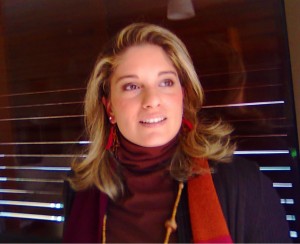Today we feature a tribute to women in the industry. Here are a few interviews with some of the composers that we featured before.
 Find Winifred @
Find Winifred @
Official website
Twitter
Facebook
Blog
A composer`s guide to game music
The biggest tip I can offer is to try to learn as much as you can, and to not be discouraged. To use a gamer metaphor, you can’t beat the game if you rage quit. Talent is important, and passion is crucial, but I think that persistence is really the key to success. Read the full interview.
 Find Alex Jones @
Find Alex Jones @Official website
Soundcloud
Can I be cheesy and say never give up on your dreams? If you have a vision, for your game or your music, whatever it may be, don’t compromise on it. If you do, you might end up never meeting the people who truly share the same vision and have the ability to create something beautiful together. The main point I’m getting at here is don’t be afraid to break away from the crowd, be artistic and expressive and all the wonderful things that make us human. Games have an amazing power to unite so many people and that’s why I love them. Read the full interview.
 Find Melissa @
Find Melissa @Blog
Soundcloud
Vimeo
Don’t let limitations stop you. For months, the only equipment I had available at all was a laptop and headphones. That didn’t stopped me from researching, creating sound effects with several techniques and uploading them to my soundcloud. That was essentially how I got my first mobile game gig! Creating a network of possible work-buddies and more experienced peers is extremely important for professional growth. And… always remember: as sound designers, we are much more than library SFX – they don’t think or listen. Read the full interview.
 Elspeth Eastman
Elspeth Eastman
Soundcloud
Bandcamp
Facebook
Youtube
Organize your music alphabetically – name songs so that you’ll be able to find them easily. Get a domain name if you don’t have one already. Create a business card, customize a logo for yourself, and hand that sucker out at every opportunity. Don’t use the words “epic” or “emotional” in your music titles – not everyone will think your music is epic or emotional, so give your songs a unique title people will remember. Send an email saying hello to your role models – they often respond and have great advice. Be outgoing, ask questions, and stand up for yourself, otherwise no one will know who you are. Read the full interview.
 Chanel Summers
Chanel Summers
Official website
School of Cinematic Arts
Interactive media
A few years ago, I was asked by a client to create an effect that sounded “orange”. To me it seemed like a ludicrous request and the product of a client that didn’t know how to express themselves eloquently, so they resorted to a ridiculous analogy since they weren’t able to provide clear and specific direction. For some time after finishing the project, I even laughed about this request over beers with some of my colleagues in the industry. But over time I’ve come to realize that this sort of creative direction can be a very good thing because it forces the artist to make associations that they otherwise wouldn’t if focused on the superficial. It forced me to think about the sound design in terms of feelings and emotions vs. acoustic properties.
Any tips, hints or motivational speeches for the readers?
The great artists are the ones that can convey a lot with very little. Learning how to edit one’s self is one of the key core concepts of great game audio design—and, frankly, design in general. Too often, unskilled artists try to put too much into their audio design. But I can tell you from experience that working within self-imposed limits forces artists to be more creative and more decisive.
Artists must, of necessity, establish a strict aesthetic that values originality and a distinctive style. Establishing limits within which to work forms the initial step in this process.
Also, I am certain that over the next few short years, successful game creators will push into new musical and sonic territories and drive deeper emotional resonance into their creations by beginning to focus on audio aesthetics, just as they have done in recent years by adopting some of the principles of visual aesthetics. In order to achieve this, however, the audio leaders of tomorrow must develop a deep familiarity today with the foundations and principles of aesthetics.
Just as film sound was pushed into a media language of its own, we will establish a common language for game audio aesthetics. And we need to keep growing that language. We must explore unorthodox paths.
Employing proper aesthetic principles to drive the latest game audio specific tools, technologies, and techniques will enable game creators to push audio, and games themselves, forward in an emotionally impactful way. Read the full interview.
 Charlotte Partt
Charlotte Partt
Official website
Charlotte @ SoundCloud
I think the best advice I could give would be to be nice, and don’t be a shark. Also be honest, people can tell when you’re bulls*****g and you’re just building yourself up for a fall if you go down that route. Not technically motivational, bit still very important nonetheless I think. Read the full interview.
 Stellita Loukas
Stellita Loukas
Official website
Stellita @ SoundCloud
I do not think I am still at the point where I can give advice, but here goes…
Always, ALWAYS believe in yourselves. Talent is nothing if you don’t believe in it. Do not waste time listening to opinions of people you don’t admire. There are a lot of people out there who are ready to either ‘lick your ears’ or pass very hard judgement on your music because they lack your abilities. Don’t limit yourselves to one or two styles; instead, try and immerse yourselves in as many different styles as you can because this will eventually result in your own unique voice. Music is one and the same (call it orchestral or dubstep) and the more genres you ‘study’, the better you speak the ‘language’. Read, listen and research as much as you can and DON’T EVER get disappointed if things do not go as planned from day 1. The road to getting where you want is not easy but is not long and hard either as many people would have us believe. I am tired of hearing how hard and difficult it is to make it and how tough the world of music is. If you want something and fight for it you WILL get there. Keep your mind open to new opportunities and your eyes on the ball. Read the full interview.
 Marie-Anne Fischer
Marie-Anne Fischer
Official website
Marie-Anne @ SoundCloud
If you are passionate about being a composer for the media and you think that you have what it takes:
- Always continue to believe in yourself and learn to be patient;
- Define success by having a crystal clear picture of what your perfect success looks like, and keep reminding yourself of it;
- Find your own niche and look carefully to see where your music would work best in achieving your definition of success;
- Never stop learning;
- Listen to as much music as you can in active and different ways;
- Share your work and get as much feedback as you can to build on;
- Don’t take criticism personally;
- Remember, always, that music is Art and not everybody will always like it.
This is a very competitive industry and it is important to maintain your own sound and protect your own identity. It is equally important that you be careful who you share you network contacts with. Your hard work at relationship building is very attractive to those who are hungry and without ethics. If music is your life-breath; breathe in, breathe out. Breathe Deeply. Breathe Often. Breathe every day. Read the full interview.
 Yaiza Varona
Yaiza Varona
Official website
Yaiza @ SoundCloud
Nothing I can say shall ever be more motivational than music itself. It´s all there, in the music. :) Read the full interview.
